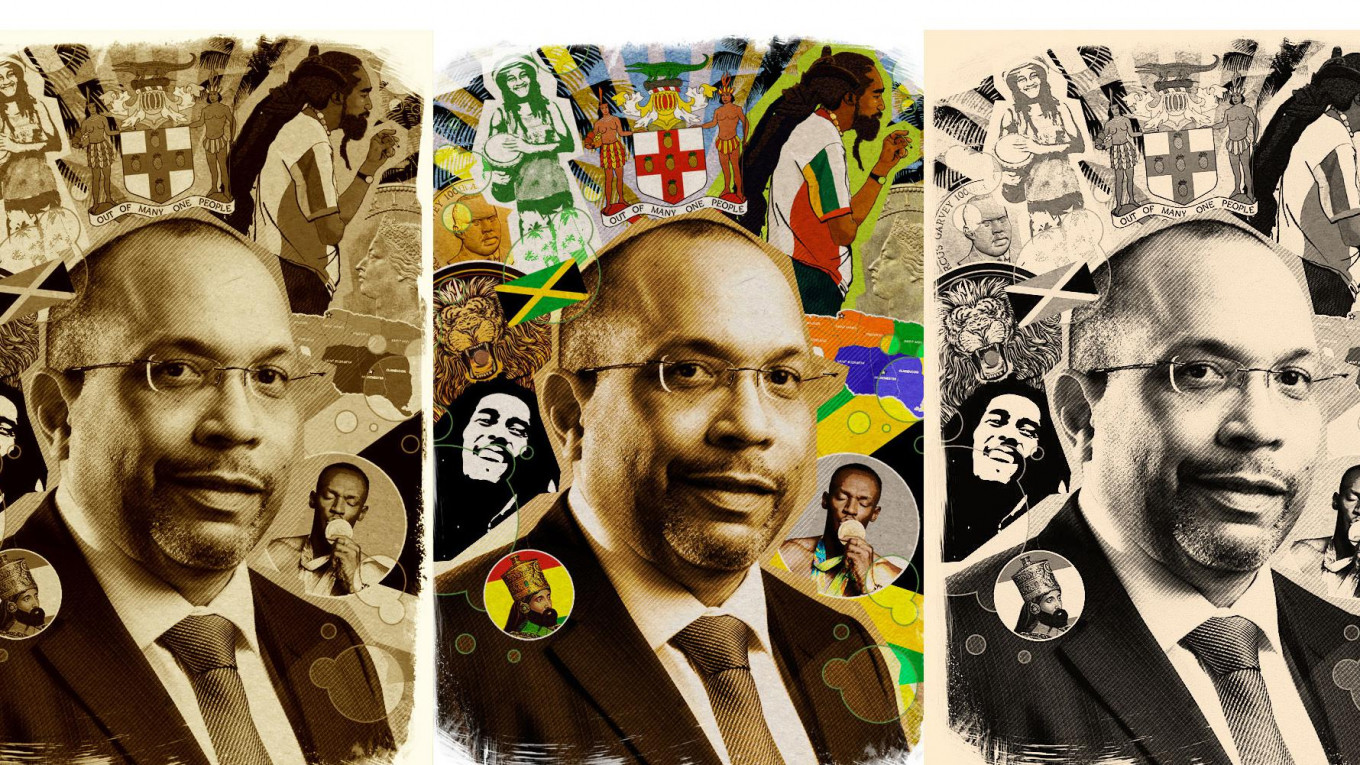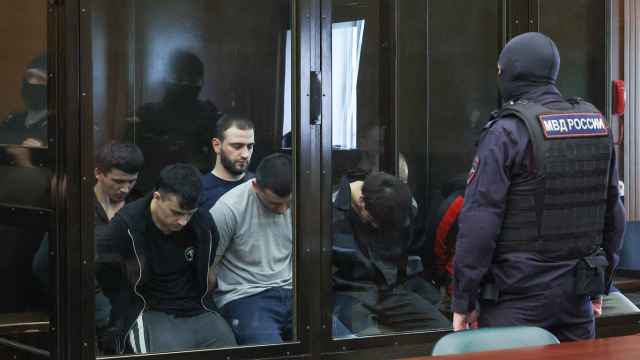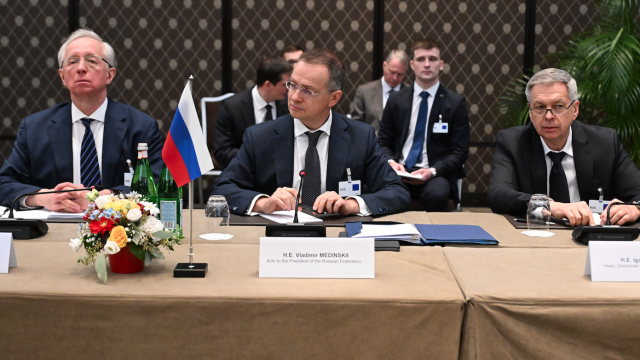Chetwynd Bowling’s hands shook as he surveyed the audience. A ragtag group of rum-drunk Caribbean ambassadors and corporate expats stared back at him. Bowling gathered himself. Recently appointed Jamaica’s consul to Russia — the first in 20 years — he had an image to uphold.
“To my friends in the diplomatic community,” Bowling said, exuding a cool, laid-back demeanour. “Forgive me if I don’t follow protocol. I’m new to this!”
That much was obvious. Bowling, a native of Guyana, has never been a diplomat. He is a lawyer by trade. His boozy cocktail reception, sponsored by Jamaica’s most popular rum label, was a refreshing departure from the usual formality of the Moscow diplomatic scene.
As the rum flowed, the Cuban ambassador to Moscow welcomed his new Jamaican counterpart to the Latin American diplomatic corps. The Russian Foreign Ministry’s chief of Latin American affairs then stepped up to explain all the reasons Russia loves Jamaica.
“Sunshine! Beaches! Reggae! Bananas!” he said.
Russia’s interest in Jamaica, of course, runs somewhat deeper than that. 20 years after Jamaica shut the doors to its embassy in Moscow, Bowling’s appointment is the first step in reinvigorating bilateral relations between two culturally disparate nations. In a nutshell, Jamaica wants Russian tourists, and Russia is interested in resources (Aluminium Oxide) and its trade ports.
A Natural Choice
In 2013, when Jamaica began mulling the restoration of its diplomatic presence in Russia, Bowling was the outstanding candidate. He might not be a Jamaican, but that didn’t seem to bother anyone. The Caribbean expat community in Moscow is small, and Bowling has carved himself a niche within it.
“I like hanging out at the old Havana restaurant and bar, as well as places like Casa Agave,” Bowling says. “I fell in with the Latin and Cuban expat scene because there isn’t really a Carribean or Jamaican one. Maybe that’s a business opportunity!”
Though he is plugged in socially, Bowling plays a more important role in the South American and Caribbean expat community. For the past decade, he has been the go-to legal counselor for Jamaican students in Moscow.
“When you get in trouble, the clerk at the store is giving you a hard time, or you get arrested on suspicion of selling marijuana, you call Chet,” he says, invoking the third person in an apparent attempt to coin a catchphrase. “If you need a passport renewed, Chet’s the lawyer can sign the documents certifying the application. All of the students came to me. Chet was doing the job.”
Bowling was, essentially, already performing half the mandate of a Jamaican consul. The students who relied on him began to lobby the Jamaican Foreign Ministry to give him a formal appointment, claiming it would simplify things for everyone. The appointment was stuck in bureaucratic limbo for three years. But at the end of 2016, Bowling received an email.
“You’re appointed,” it read.
A Long Way to the Top
Bowling’s affinity for Caribbean students in Moscow is a byproduct of his own background. In 1991, he arrived in Moscow on a law scholarship at Russia’s People’s Friendship University. He made money on the side working as a barman, and later, as manager of Azteca, the capital’s very first Tex-Mex restaurant, which was located on the 20th floor of what was then the Intourist hotel (the Ritz-Carlton now stands in its place).
“Everyone went there to make deals, so I had a good sense of what was going on,” Bowling says. In time, he fell in with a group of Western expats looking to start a brokerage firm in Russia. They needed a lawyer on staff for compliance purposes. Bowling, with his Russian law degree, was a perfect fit.
“I always wanted to be a lawyer,” he says. Growing up in Guyana, Bowling looked up to his father’s lawyer friends. They were everything he wanted to be: confident, polished, and rich. And so, he enrolled in law school in Guyana. He didn’t finish the program, taking a break to work. That is when he found scholarship opportunities at the People’s Friendship University.
“Apart from wanting to study law, I thought to myself: ‘why not come to Russia, learn a new language, and go east?” Bowling says. “Everyone else was going to New York or London. My parents couldn’t afford to send me there, but it also occurred to me to do something different. And so, I landed in Russia in 1991.
”By the time he finished his degree in Moscow in the mid-1990s, however, there wasn’t much money to be made in the legal profession. The real cash was in stock brokerage. So before long, Bowling had abandoned his legal ambitions and was trading at the firm he helped found — KRES Financial Brokerage.
The bull run on the stock exchange ended with Russia’s 1998 financial collapse. At this point Bowling and his friends began looking for other opportunities. He noticed that the market for small and medium-business consulting firms in Russia was wide open. So he started his own firm, Alinga, bringing him back into legal and business consulting.
Jamaica’s Man in Moscow
Beyond helping Jamaican students in Moscow — there are about 50 or 60 at the moment — Bowling’s diplomatic mandate is to help foster deeper trade relations with Russia. In this capacity, his long career as a business and legal consultant to foreign firms should come in handy. He already has a network.
“Until two years ago, there were 15- 20,000 Russians flying to Jamaica each year,” Bowling says. These volumes collapsed in 2014, with the bankruptcy of Russian airline Transaero, which offered a direct flight once every 10 days. “We are pushing Aeroflot to re-establish that flight,” he says.
In the longer term, Bowling’s mandate will expand to helping Jamaican businesses enter the Russian market. “Jamaicans are, on the whole, very entrepreneurial and I am quite certain there are a lot of products that can sell well here. For example, you saw the nice rum at the reception: A lot of people ask me why they don’t sell more of that here.”
Bowling’s experience with Russian business culture leaves him uniquely placed to advise Jamaican entrepreneurs. His advice to them: “have an open mind — what is normal practice here is not normal in other places,” he says. “Also, get to know your local staff, learn their language. And always remember: trust but verify.”
Ambitions may be sky-high, but for now, the reality is more ground-level. The new Jamaican Consulate in Moscow does not enjoy a pomp aristocratic mansion. Instead, the Consulate shares a desk with his Alinga consulting firm, located in an unassuming post-Soviet block. The only sign that you’ve found the consulate is a modest “Jamaican consulate” plaque on Bowling’s door.
As for his official standing, Bowling’s direct superior is not Jamaica’s foreign minister, but a few rungs down — the ambassador in Berlin. He checks in on a weekly basis.
Bowling has taken his appointment with humor. “My friends in the business community!” he cried at the end of his speech. “If you continue to support me so energetically, maybe they will think about making me an ambassador!”
In this interview, conducted at the desk of the Jamaican
Consulate the day after the reception, a groggy Bowling
admitted that wasn’t likely to happen.
A Message from The Moscow Times:
Dear readers,
We are facing unprecedented challenges. Russia's Prosecutor General's Office has designated The Moscow Times as an "undesirable" organization, criminalizing our work and putting our staff at risk of prosecution. This follows our earlier unjust labeling as a "foreign agent."
These actions are direct attempts to silence independent journalism in Russia. The authorities claim our work "discredits the decisions of the Russian leadership." We see things differently: we strive to provide accurate, unbiased reporting on Russia.
We, the journalists of The Moscow Times, refuse to be silenced. But to continue our work, we need your help.
Your support, no matter how small, makes a world of difference. If you can, please support us monthly starting from just $2. It's quick to set up, and every contribution makes a significant impact.
By supporting The Moscow Times, you're defending open, independent journalism in the face of repression. Thank you for standing with us.
Remind me later.






